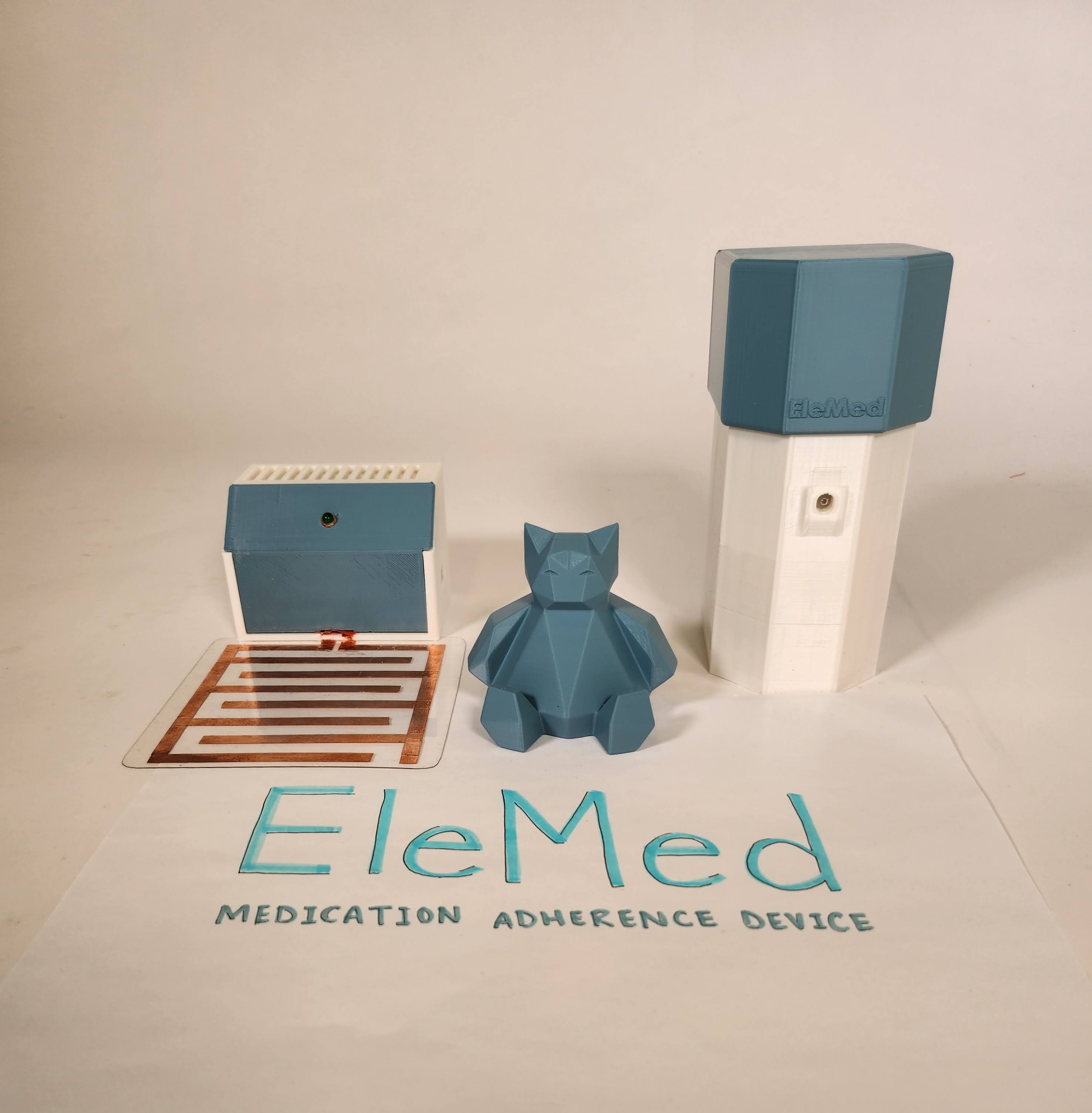Assignment: Create a routine-based product to assist the elderly in medication adherence.
For my senior design project, I worked with two teammates to develop a prototype for EleMed, a small Tufts-based medical research group. In the US, around 75% of the 50+ population take prescription medication. However, around half of these consumers experience difficulty adhering to their daily medication. This may be due to various reasons, such as bad memory, medical illiteracy, or a lack of a consistent schedule. To combat this issue, EleMed is looking to develop a routine-based alert system that triggers when consumers go through a certain part of their daily routine, such as brewing coffee or brushing teeth. This system is meant to be flexible enough to suit various routines for different consumers.
Our final prototype consisted of a two-part system: the first part was a sensor that would detect a user performing a part of their daily routine, such as brushing their teeth or brewing coffee. This sensor module would then send a signal through a web server. The second part of the system, a pill case dock, would then sound an alert that would only turn off once the user has removed the pill case from the dock and takes their pills.
The program flow chart is shown below.
As a part of the entrepreneurial aspect of this project, we compared our product with other adherence products in the table below.
A video demonstration of the product is shown below.





